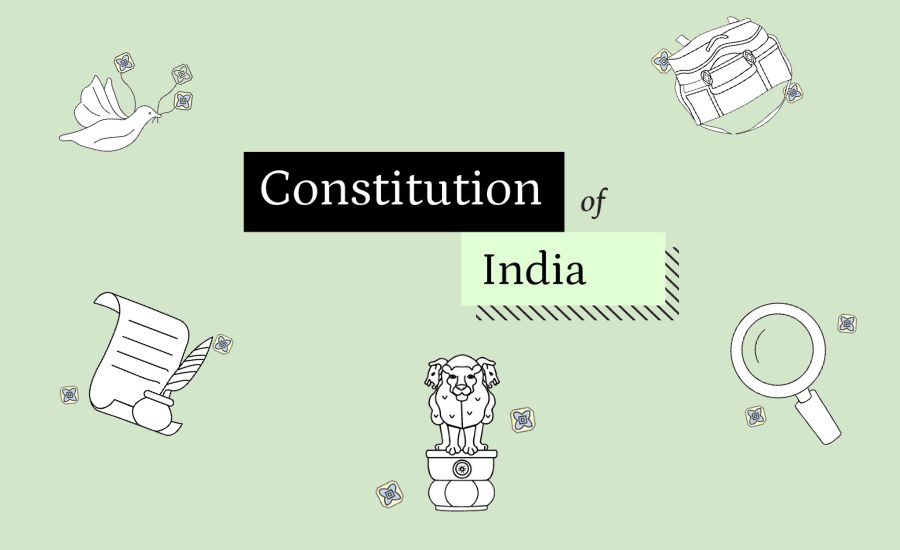Understanding the Living Constitution of India: Its Essence, Functions, and Significance”
Introduction:
Welcome to the official blog of the Law Offices of Kr. Vivek Tanwar Advocate and Associates, where we are dedicated to providing litigation support services for matters related to the Living Constitution of India. In today’s blog post, we aim to shed light on the prevailing issues surrounding The Constitution of India, the legal framework for their protection, and the steps we can take as a society to combat these acts. Join us as we explore this critical subject and empower you with the knowledge to protect your rights and safety.
The Constitution of India is often referred to as a “living document.” This article explores the significance of this term by delving into the meaning, importance, and various components of the Constitution. It discusses the Preamble, Fundamental Rights, Directive Principles of State Policy, Writs, and the nature and structure of this supreme legal framework. Through a comprehensive examination, we aim to shed light on why the Indian Constitution is considered so powerful and supreme.
Defining a Constitution:
A constitution, a term of French origin, represents a set of fundamental rules and regulations that govern the functioning of a nation-state or any organization. It outlines the fundamental principles, administrative structures, procedures, and individual rights while guiding a nation’s development. Constitutional law interprets and implements the Constitution’s principles, ensuring individuals’ access to specific fundamental rights. This body of law addresses critical subjects such as judicial review, fundamental duties, and legislative powers, with the Supreme Court of India playing a pivotal role in this realm.
Understanding the Meaning of “Constitution”:
Scholars like Albert Venn Dicey and Thomas M. Cooley have provided insights into what a constitution encompasses. Modern constitutions are rooted in their fundamental principles, ideologies, and governmental structures, reflecting their democratic ideals. They grant fundamental rights to citizens, and they stand as supreme laws, immune to arbitrary alterations through conventional legislative reform. The interpretation of a constitution can vary from country to country, but some common elements include binding authority, the definition of government structures, political principles, individual rights, democratic values, rigidity, and an alignment with international norms for democratic societies.
Scope of Constitutional Law:
Constitutional law encompasses the functioning and authority of state institutions and interactions between citizens and the state. It is shaped by the socio-political context in which it operates, reflecting the ethical ideals of the governed. Constitutional laws can be either written or unwritten, with written constitutions, like India’s, standing as the supreme law, while unwritten constitutions lack a hierarchy between the constitution and ordinary laws.
The Nature of Constitutional Law:
Constitutional laws can be both written and unwritten. Written constitutions, like the Indian Constitution, take precedence over all other laws, rendering any law inconsistent with it invalid. In contrast, unwritten and flexible constitutions, such as those of the United Kingdom, allow constitutional amendments through ordinary legislation.
Functions of the Constitution:
The Constitution performs several crucial functions, including defining political boundaries, character, and competence of the political community, shaping national identity, and declaring citizens’ rights and responsibilities. It also establishes political institutions and governs the division or sharing of sovereignty between different tiers of government or sub-state entities. Additionally, the constitution may declare a country’s official religious identity and set boundaries for sacred and secular institutions while promoting specific social, economic, or development aspirations.
Constitutional Law in Legal, Political, and Societal Contexts:
Constitutions serve as the intersection of legal, political, and societal structures. They marry power with justice, ensuring that authority is exercised reasonably and in accordance with the rule of law. Constitutional law defines the nation’s decision-making structures and embodies society’s identity and values.
The Need for the Constitution and Constitutional Law:
Constitutions worldwide aim to ensure fair and impartial governance, protect individual and community rights, and promote resource management and economic growth. Constitutionalism forms the basis for government legitimacy, emphasizing the adherence to the rule of law.
Conclusion:
A constitution, like the Indian Constitution, serves as the rulebook for a nation’s governance, preserving the principles of democracy, equality, and justice. It empowers legal authorities to act in the public interest while preventing the abuse of power. The principles enshrined in the constitution ensure that the “political game” is played fairly, protecting the rights and interests of all citizens. Constitutionalism stands in contrast to authoritarianism, offering a framework that upholds the rule of law and safeguards the fundamental rights of individuals in a democratic society.
We are a law firm in the name and style of Law Offices of Kr. Vivek Tanwar Advocate and Associates at Gurugram and Rewari. We are providing litigation support services for matters related to the Constitution of India.


Hello just wanted to give you a brief heads up and let you know a few
of the pictures aren’t loading properly. I’m not sure why but I think its a linking
issue. I’ve tried it in two different internet browsers and both show the same results.